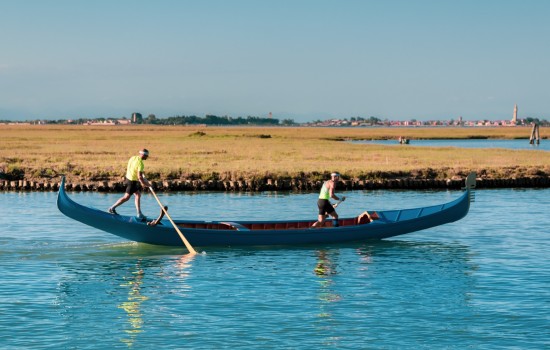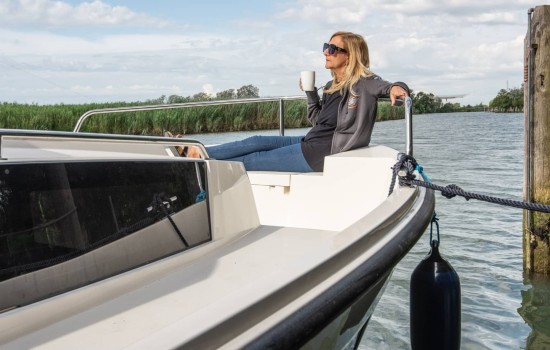Can I tie my boat wherever I want during my holiday? How do I know if I will find a free spot? Where can I find available moorage places for my houseboat? These and other frequent questions will be answered in this article, in which you will get to know everything you need.
Can I tie my boat wherever I want during my holiday? How do I know if I will find a free spot? Where can I find available moorage places for my houseboat? These and other frequent questions will be answered in this article, in which you will get to know everything you need.
Mooring a houseboat means basically 2 things:
- Knowing where to find moorings
- Knowing the mooring techniques
The answer to the first question is easily found inside our special cartography/map, edited by Houseboat Holidays Italia – HHI. Over the years we’ve developped a series of navigation manuals and nautical charts with the hydrography of the rivers, which are updated every year and which indicate exactly where mooring is possible. Furthermore, we affiliate every year several receptive facilities and Marinas, which guarantee the availability of mooring places also during summer time, when there is a higher influx of tourists. Thanks to these nautical charts, which must never be missing on board, you will always know what to expect from each location you encounter along your trip. Not every place is suitable for mooring; this is why you should decide your itinerary in the morning and follow the instructions on the nautical charts and the river guide, in order to reach all services without stress. Not only will the nautical charts provide you with the perfect, adequately solid, spacious and safe moorage for your Canalboat, but also provide precious touristic information about the leisure activities you can do in a specific area.
The second point is well explained in the manuals and during the introductory briefing on the check-in day. In addition, the mooring techniques will be assessed during the driving test. Now, there are basically 2 ways to moore a boat, the one called “all’inglese - the english way”, when the boat is aligned with one side to the pier, and “di poppa – from astern” , which is when the pier is approached in reverse. The first method is almost always used on river quays, embankments and occasional berths. The second is mainly used in the Marinas and harbours. Let’s deepen these aspects a little. The mooring “all’inglese - the english way”, which is from one side, foresees the use of 2 mooring lines, but when the weather conditions are bad and it’s windy, reinforcing the mooring with a third line is highly recommended.
It’s always best to moor against the tide, both because it’s much easier to maneuver with the water current towards the bow and because you avoid the risk of floating debris settle on your propeller during your stop. Landing in reverse requires better steering skills, and making mistakes and having to move away and try over again is not unusual. No problem, to be honest: everybody has been there at least once. Just move slowly, re-align and try again. In this case you will usually need 4 lines, 2 at stern to be tied to the pier, 2 at the bow to tie around the mooring posts which delimit your moorage-spot. With this kind of mooring, the 4 lines ensure that your Houseboat does not touch the boats, that are moored next to you, nor the the pier on th side of the stern.
A special mention has to go to the tides. As the navigation is mainly done quite near the sea, especially in the lagoons of Veneto and Friuli, the water level is always influenced by the tides. It can’t be seen by the naked eye, but the water rises and falls very slowly for about 1 metre. It is therefore essential, with any kind of mooring, to regulate the lines every 3 to 4 hours, loosening or shortening the lines in order to adjust to the water level. This measure will avoid, that the boat “hangs itself” when the tide is low and the lines are too short, or the opposite. With all these information you now know everything you need to know about the mooring of your houseboat during your holidays
Booking online pays off, do it now!


















 Plan your vacation
Plan your vacation
 Navigation charts
Navigation charts